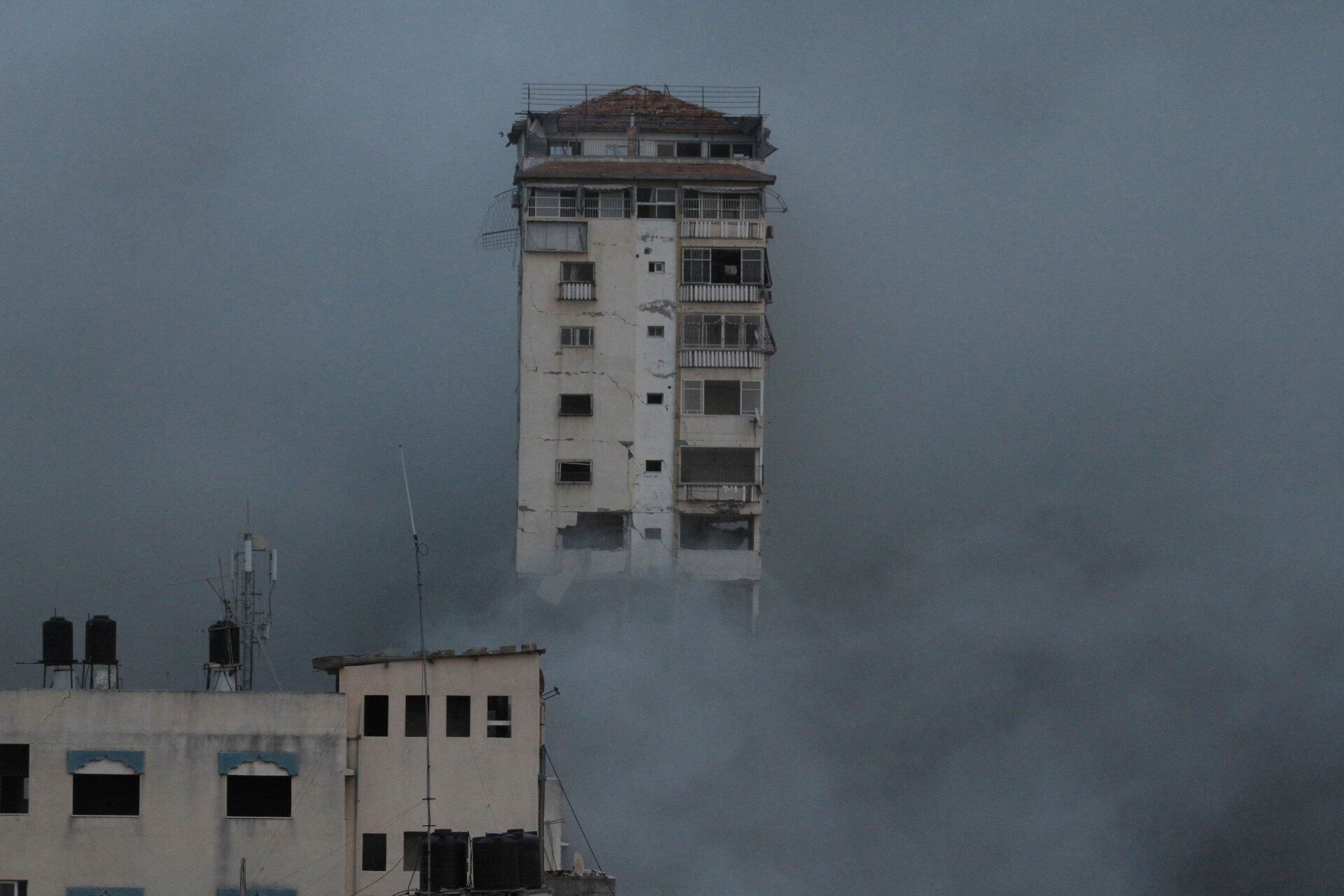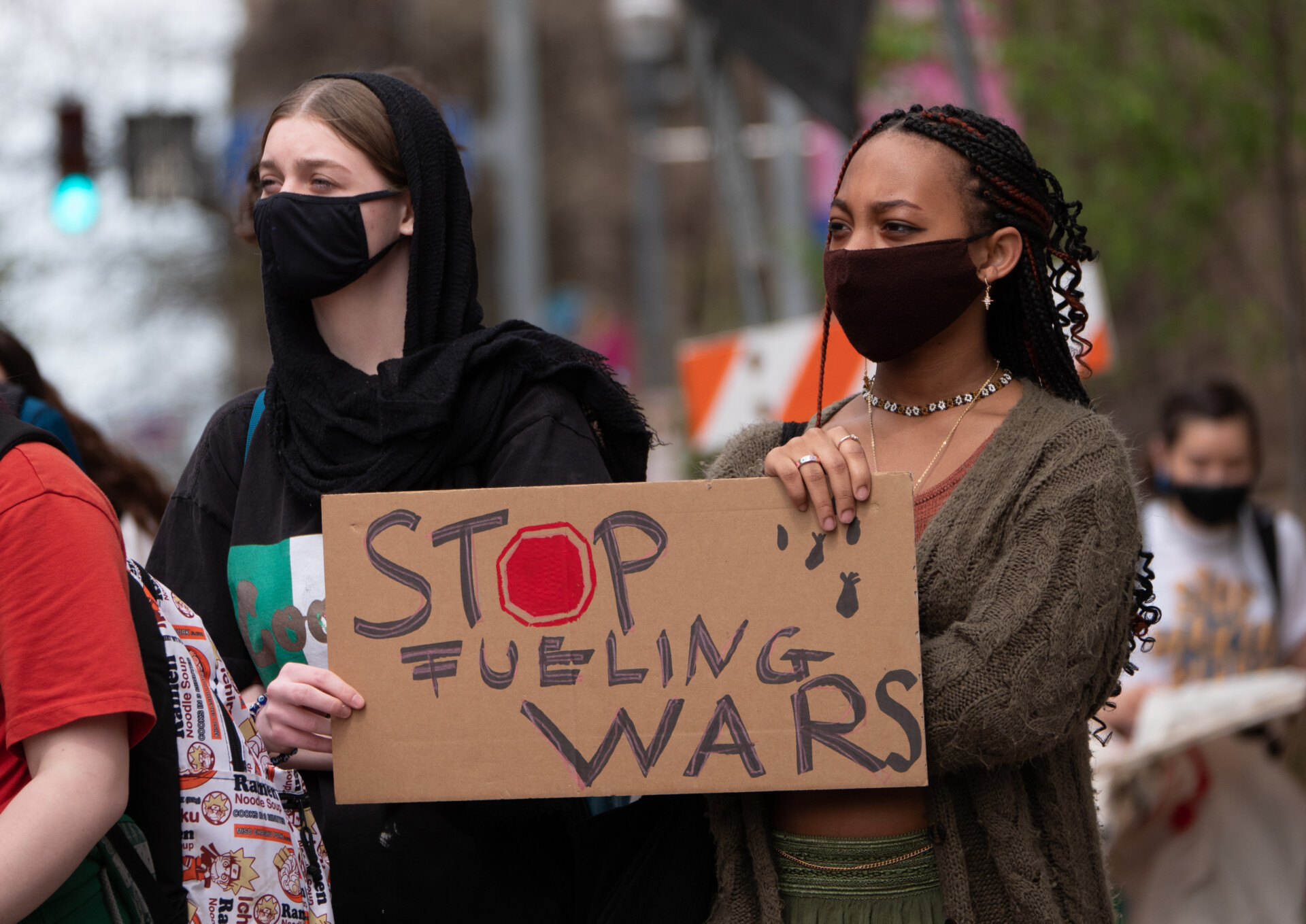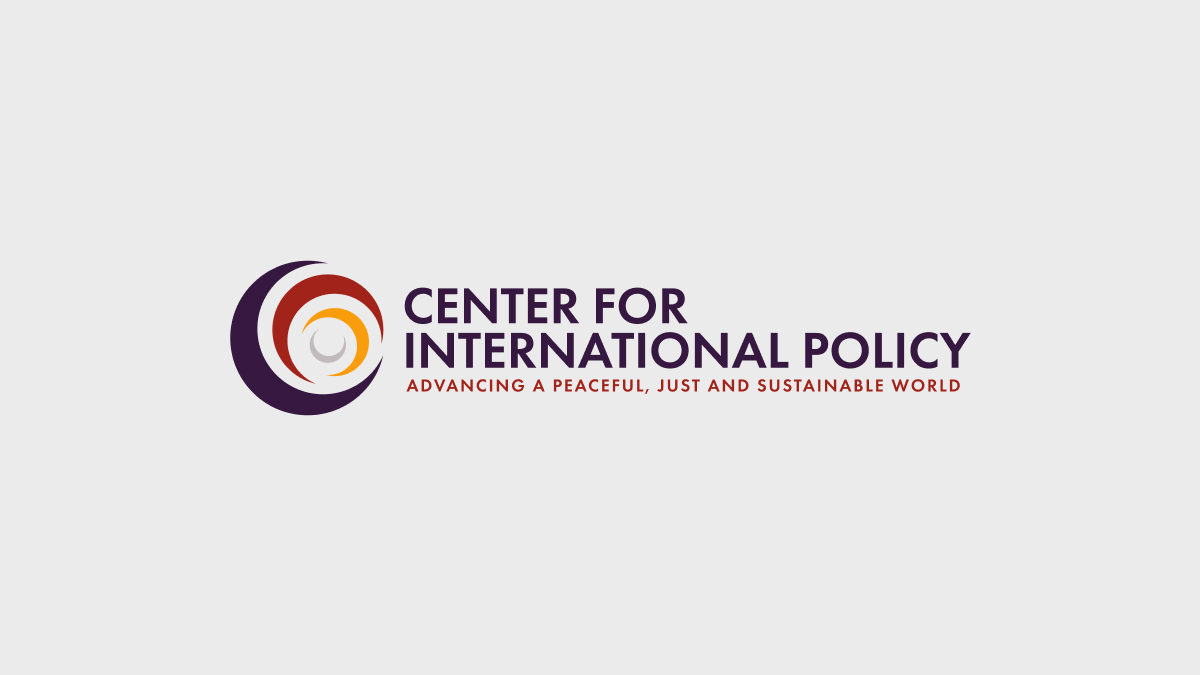
To defeat oligarchy, Ukraine needs strong labor protections. The US can help.
Vladyslav Starodubtsev is a Ukrainian social-democratic, human rights, and social activist and historian of Central and Eastern Europe and Ukrainian left-wing movements.
Every Ukrainian government since independence in 1991 has shared the goal of implementing austerity. In pursuit of an economy organized by neo-Thatcherite principles, each successive government has sought to limit the social and labor rights of Ukrainians. From the Russian invasion in 2014, this has meant prioritizing the oligarchy’s sectoral interests and anti-social business practices over promoting social cohesion and national unity.
Ukrainian labor was already under attack before the 2022 invasion. A 2020 report by the US State Department on the state of human rights, including labor rights in Ukraine, mentioned acts of violence against trade unionists as well as pressure against workers who were acting against corruption in their workplace. In addition, State reported discrimination in the workplace; lack of worker safety and undermining the safety regulations; dangerous work conditions; and delays in payment of wages (essentially a “theft” of wages).
Still, only since Russia’s February 2022 full-scale invasion of Ukraine has the full extent of the consequences of such policies become clear. One can see overworked nurses toiling in hospitals that lack capacities and equipment, facing a huge number of wounded while understaffed and underpaid, for often no more than 130-150 dollars a month – well below the $175 monthly minimum wage (and earning at most a maximum of 300 dollars/month). Construction workers labor without proper safety standards, working under constant threat of rocket and drone strikes. At the same time, the government has implemented tax cuts for businesses, and further benefited employers at the expense of workers by easing the process of firing an employee. All of this came at the moment when stability for most people became non-existent.
Ukraine’s labor standards were already worsening before February 2022, but instead of easing the burdens on workers and capital equally in the face of the war, labor standards have instead been actively degraded by new laws.
Capital Gains
In March 2022 the least balanced labor law in Ukraine since independence, Law 2136, came into effect. It allowed employers to fire workers without the consent of trade unions and during sick leave. It became possible to increase the work week to 60 hours, and the inviolability of the right to pay was abolished. Employers were able to dismiss employees due to disagreements regarding the continuation of work under new working conditions without waiting for 2 months.The biggest imbalance was caused by the procedure for suspending employment contracts, which employers abused, putting employees on the edge of survival with impunity
Law 2136 also canceled holidays during wartime. This could be justified under some circumstances, but in effect, labor bore the brunt of the hardships, while employers were largely unaffected. Before the full-scale invasion, if work could not continue due to objective factors, workers were able to receive compensation while finding a new job, allowing them to find a better job without compromising their dignity by immediately accepting worse employment.
Under the new law, employers could stop employment contracts without firing an employee and without paying them. This meant that people could no longer register as unemployed while finding work and therefore could not get unemployment benefits. This has not always worked out to the employers’ benefit, though it often does. Since Law 2136’s introduction, in some cases courts sided with employees if an employer did not specify a reason for stopping work.
Law 2136 also introduced the possibility of moving workers onto 1-hour working days, with proportional lowering of wages. If employees disagree, they could be fired without any compensation. Employers were only required to provide 2 days of notice before implementing such decisions, thus depriving them of the possibility to save money or find alternative employment.
With Law 2136, Ukraine enabled employers to avoid paying maternity leave, compensation for pregnant workers, and other benefits.
In July 2022, the Law on Simplifying the Regulation of Labor Relations (Law 2434) was adopted. It introduced parts of the Civil Codex into the labor Codex, providing further opportunities to undermine the labor Codex by allowing looser contracts between employees and employers. The main “innovation” of this law was the introduction of the possibility of firing workers easily.
In August 2022, the Ukrainian government introduced Law 2421, one of the worst-regulated laws on zero-hour contracts in the world. Precarious work, which elsewhere increasingly trends towards greater regulation, is instead becoming even more precarious in Ukraine. Law 2421 establishes zero-hour contracts without any additional security for workers agreeing to such a precarious arrangement. Employers can enter into collective labor agreements with no obligation to provide employees with work, but can offer it as they need. Payment is made only for completed work. After receiving an offer from an employer, an employee must accept it within the terms established by the contract and start work; in case of refusal, they may face disciplinary action. If the duration of work is less than 32 hours per month, the monthly salary is paid for 32 working hours. In effect, the law practically cancels the requirements for a minimum wage.
The new law introduces the possibility of calling an employee at any time and forcing disciplinary action if an employee doesn’t respond. It introduces the possibility of paying less than a minimum wage for work, as well as the possibility of overtime work without compensation. This law undermines the right to private life and poses severe threats to the mental health and well-being of employees.
In its latest statement, the second biggest trade union of Ukraine directly calls the new labor Codex (planned to be accepted in 2024) that the government is now working on, “enslavement.” The statement reads; “Enslavement of employees is foreseen, and employers are given the right to apply overtime hours almost without restrictions (at their discretion).”
Labor Struggles
Even after this attack on labor rights, Ukrainian labor security formally could be seen as at least comparatively average. But in reality, this could not be further from the truth, as the law has power to protect workers only when it is enforced. Undermining workers’ rights illegally is now an incredibly widespread and normalized practice, one aided by the government’s introduction of a moratorium on labor inspections.
The International Labor Organization has concluded, drawing on the examples of Tajikistan and Kyrgyzstan, that any moratorium on labor inspections “would substantially undermine the inherent functioning of the labor inspection system” and that to adhere to the norms of labor regulations, “the Government [should] take prompt measures to ensure that labor inspectors are empowered to make visits to workplaces liable to inspection without previous notice and to undertake labor inspections as often and as thoroughly as is necessary to ensure the effective application of the legal provisions.”
In 2023 labor inspections were reintroduced under the pressure of the EU, but with severe limitations that effectively undermine inspections.
These new labor standards were not in any way communicated with the population, and did not receive adequate debate or discussion before adoption. Most people are not well educated on labor law, and the country lacks a strong pool of labor lawyers who can educate and empower workers to find weaknesses in the law and defend their rights.
While it has become somewhat difficult to criticize Ukraine’s government during wartime, the same criticisms have long been made by Ukrainian trade unions, preceding the war: the country is in dire need of a good system of inspections and labor security to enforce standards of labor law.
Furthermore, there has been a constant effort to nationalize trade union property, pursuing the legal argument that trade union property in the USSR was the property of the state and thus, after more than 30 years of independence, it should be inherited by the Ukrainian state, which is viewed as the successor to the Ukrainian SSR, not by trade unions. This argument is used as both an instrument of intimidation to achieve trade union loyalty and as a tool to undermine trade unions’ means for realizing their role in civil society.
In 2022, the government introduced a number of reforms that severely and disproportionately weakened Ukrainian labor rights. Meanwhile, capital has seen its privileges expand, damaging the social contract between workers and businesses by fully siding with business. Tripartism between the state, capital, and labor is practically no more.
None of these reforms helped the economy. They also weakened the human potential, well-being, and physical and mental state of employees, as well as artificially creating highly precarious conditions.
The lack of jobs and extremely low, and usually not-enforceable, minimum wage, which sometimes was ignored outright – even some state enterprises have jobs with less than the $175 monthly minimum wage, with some employees earning only $150 – worsens the situation on the labor market, since fewer qualified workers want to work in Ukraine at a time when the Ukrainian labor market faces serious shortages.
New labor laws have weakened trade unions, thus limiting the voice of civil society and weakening social dialogue between different social groups. This lack of communication also has an economic effect, since cooperation between labor and capital is weak, as is motivation. This lowers productivity and flexibility.
A huge number of workers are working in the shadows. Tax police ignore the problem, and the government tries to normalize this state of affairs. These anti-labor reforms also strengthen the shadow sector, as official employment no longer provides sufficient guarantees. Meanwhile, the government does little to force business out of “the shadow economy.”
Mobilization efforts are hampered by inequality and the refusal of the government to make capital to pay their fair, equal share, together with labor. New labor laws, while rhetorically trying to “move away” from the Soviet legacy, have retained the mindset towards labor inherited from the USSR: a denial of the value and dignity of employees.
Solidarity and the US
How can the US help Ukrainians to limit the harms of oligarchy and regressive reforms, while providing social security for workers ?
In light of such reforms, which are made only for pursuing very narrow sectoral interests instead of the common good, one should understand Ukrainian society and group interests as diverse and complex. We still, unfortunately, retain the strong influence of the old Soviet elite, which became the Ukrainian oligarchy, and we suffer from Thatcherite-like reforms that created a new group of powerful and unchecked influences on politics and the economy. At the same time, Ukraine has a robust civil society, the largest part of which is made up of trade-unions. There are a great number of problems that need to be tackled to ensure basic fairness and justice, which is even more important in the context of full-scale war. Society should feel connected, united, strong, and not undermined and divided by social, political and economic conditions.
Biden’s foreign policy towards Ukraine can be understood in a number of ways. Despite modest beginnings, there have been steady improvements. I expect that this tendency will continue if Biden wins another term. This is the case especially with labor rights, where we hope to see the US taking a greater role in protecting Ukrainian labor.
In 2022, the American Federation of Teachers sent a letter to Secretary Blinken, asking him to look into the Ukrainians government’s actions to undermine the Ukrainian trade union movement and limit worker’s rights. The letter states: “Overall, these new laws, if signed by President Zelensky, will eliminate most collective bargaining rights, reduce worker protections, and allow the state to confiscate property owned by unions and currently used to shelter war refugees.”
The letter was made after a call for solidarity by Ukrainian trade unions against attacks on workers’ rights when they couldn’t be defended, as people were fully concentrated on winning the war.
The AFL-CIO also provided strong backing for Ukrainian trade unions and made sure that Ukrainian trade union voices were heard. It raised awareness in the US government and motivated the adoption of policies to act on Ukrainian society’s demands.
In 2023, Julie Su, the US acting Secretary of Labor, organized a meeting with Ukrainian medical workers to highlight the issues that they are facing, during which Ukrainians discussed the horrible labor conditions in the country.
Some US grants came with conditions that targeted the strengthening of labor, and USAID actively finances trade union events and organizations focused on the promotion of labor rights, such as Labor Initiatives.
The US constantly provides support for the Ukrainian government’s social spending. To make sure that this money would be spent beneficially to the majority of Ukrainians, the US set limitations to the categories on which money could be spent. This is despite the Ukrainian government’s Ministry of Social Policies (which also deals with labor related questions) policy to introduce as many social cuts as possible. This policy was described explicitly: “destroy all social.” The mentioned motivation was to promote the “self-sufficiency” of internally displaced people and others facing extreme pressure so they wouldn’t “get used” to government help. This plan was extensively criticized by Ukrainian social policy researchers.
Active sabotage by some officials and downplaying of the role of the trade unions undermines the majority of Ukrainian society, which in turn produces corruption, unchecked power, lack of stability, and poverty for the majority of Ukrainians. The question of winning the war thus becomes a question of organizing an equal share of responsibility, feeling of community, and common solidarity, which is incompatible with the pursuit of the sectoral economic interests of a powerful few at the cost of the rest of Ukrainian society.
What should be done?
While US policymakers have made efforts to help Ukrainian labor, these efforts are often undermined. For example, medical workers had praised a US grant of $1.25 billion for wages to state-employed workers, but voiced concern with real allocations, especially after Ukraine’s cabinet authorized wage cuts for these same workers. This is just one example where US help has been allocated to help labor, but is subsequently misspent by government schemes or solely allocated for higher management, which already enjoys relatively high wages by Ukrainian standards.
To answer that problem, the US needs to change its priority from securing Ukrainian labor through the help of the government to a multiplicity approach that recognizes the conflicting interests of different parts of Ukrainian society. This might mean helping the national government in one regard while helping the trade unions and local government in others, sometimes, even at the expense of national government interests.
I call that approach poly-archic: recognizing different groups, their positions and roles in society, and the goals that they can achieve. In that sense, the Ukrainian government has a strong pro-oligarchic bias but has a talent for organization of military production and guiding construction efforts. It should be supported in achieving those goals, and trade unions and labor should be supported for the goals of fighting poverty, better social cohesion, tripartism and, importantly, for the effort to battle corruption and oligarchic influence in the political sense: limiting possibilities for unchecked government actions, promotion of group interests; and rigorously controlling government actions towards labor.
Diversifying funds and other means of help towards different agents in Ukrainian society could be a great benefit. Such diversification will strengthen democracy and human rights, promote deliberation, stabilize Ukrainian society, make it more resilient, and indirectly strengthen the Ukrainian war effort. All of this while making the Ukrainian government more transparent and effective.
This is important not only in Ukraine but also in the US. It can create dialogue and cooperation between US trade unions and the US government, combining the skills and knowledge of both to provide strong common support for Ukrainian labor.
With that said, Ukrainian labor will need substantial international support to help contain trade union inefficiencies and corruption where those exist. This is a cheap investment, from a financial standpoint, that can boost anti-corruption, democratic, and anti-poverty efforts dramatically.
Conditions for financial aid in terms of labor security could also be stronger. Together with empowering trade unions, it could be enough to help Ukrainians pressure their government when it engages in wrongdoings. Minimum demands would need to include a fair minimum wage, security from firing, promoting social-oriented practices of business, and the introduction of pro-active labor inspection.
Implementing new, even modest, measures towards empowering labor and civil society as a whole will improve democracy and political participation, social cohesion and Ukraine’s economic growth. Ukraine’s victory will be that much closer if Ukrainian labor has a strong voice.


